第104章 Chapter 13 Survivals of the Non-Invidious Interest
In its positive discipline, by prescription and by selective elimination, the leisure-class scheme favors the all-pervading and all-dominating primacy of the canons of waste and invidious comparison at every conjuncture of life. But in its negative effects the tendency of the leisure-class discipline is not so unequivocally true to the fundamental canons of the scheme. In its regulation of human activity for the purpose of pecuniary decency the leisure-class canon insists on withdrawal from the industrial process. That is to say, it inhibits activity in the directions in which the impecunious members of the community habitually put forth their efforts. Especially in the case of women, and more particularly as regards the upper-class and upper-middle-class women of advanced industrial communities, this inhibition goes so far as to insist on withdrawal even from the emulative process of accumulation by the quasi-predator methods of the pecuniary occupations.
The pecuniary or the leisure-class culture, which set out as an emulative variant of the impulse of workmanship, is in its latest development beginning to neutralize its own ground, by eliminating the habit of invidious comparison in respect of efficiency, or even of pecuniary standing. On the other hand, the fact that members of the leisure class, both men and women, are to some extent exempt from the necessity of finding a livelihood in a competitive struggle with their fellows, makes it possible for members of this class not only to survive, but even, within bounds, to follow their bent in case they are not gifted with the aptitudes which make for success in the competitive struggle.
That is to say, in the latest and fullest development of the institution, the livelihood of members of this class does not depend on the possession and the unremitting exercise of those aptitudes are therefore greater in the higher grades of the leisure class than in the general average of a population living under the competitive system.
In an earlier chapter, in discussing the conditions of survival of archaic traits, it has appeared that the peculiar position of the leisure class affords exceptionally favorable chances for the survival of traits which characterize the type of human nature proper to an earlier and obsolete cultural stage.
The class is sheltered from the stress of economic exigencies, and is in this sense withdrawn from the rude impact of forces which make for adaptation to the economic situation. The survival in the leisure class, and under the leisure-class scheme of life, of traits and types that are reminiscent of the predatory culture has already been discussed. These aptitudes and habits have an exceptionally favorable chance of survival under the leisure猚lass regime. Not only does the sheltered pecuniary position of the leisure class afford a situation favorable to the survival of such individuals as are not gifted with the complement of aptitudes required for serviceability in the modern industrial process; but the leisure-class canons of reputability at the same time enjoin the conspicuous exercise of certain predatory aptitudes. The employments in which the predatory aptitudes find exercise serve as an evidence of wealth, birth, and withdrawal from the industrial process. The survival of the predatory traits under the leisure-class culture is furthered both negatively, through the industrial exemption of the class, and positively, through the sanction of the leisure-class canons of decency.
With respect to the survival of traits characteristic of the ante-predatory savage culture the case is in some degree different. The sheltered position of the leisure class favors the survival also of these traits; but the exercise of the aptitudes for peace and good-will does not have the affirmative sanction of the code of proprieties. Individuals gifted with a temperament that is reminiscent of the ante-predatory culture are placed at something of an advantage within the leisure class, as compared with similarly gifted individuals outside the class, in that they are not under a pecuniary necessity to thwart these aptitudes that make for a non-competitive life; but such individuals are still exposed to something of a moral constraint which urges them to disregard these inclinations, in that the code of proprieties enjoins upon them habits of life based on the predatory aptitudes. So long as the system of status remains intact, and so long as the leisure class has other lines of nonndustrial activity to take to than obvious killing of time in aimless and wasteful fatigation, so long no considerable departure from the leisure-class scheme of reputable life is to be looked for. The occurrence of non-predatory temperament with the class at that stage is to be looked upon as a case of sporadic reversion. But the reputable non-industrial outlets for the human propensity to action presently fail, through the advance of economic development, the disappearance of large game, the decline of war, the obsolescence of proprietary government, and the decay of the priestly office. When this happens, the situation begins to change. Human life must seek expression in one direction if it may not in another; and if the predatory outlet fails, relief is sought elsewhere.